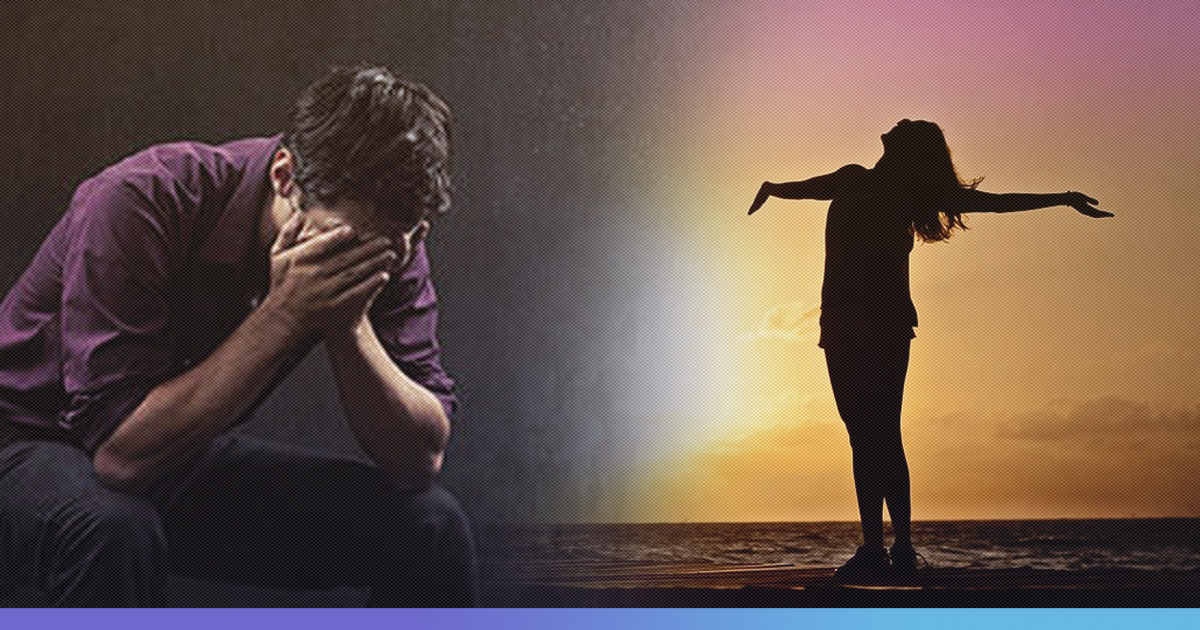“You are under medication for being depressed? Really?”
I have heard that a lot. You can be under medication for having a fever, that is completely normal. But the moment it comes to mental health, they prefer talking under their breath. The world ‘mental’ is always associated with the term ‘mad’.
I was diagnosed with clinical depression in the year 2015.
I Was ‘Depressed’ And Not ‘Sad’
Since the beginning of November 2015, I began feeling unhappy. I started cutting off contact with friends and family. I stopped watching TV and listening to music. I stopped eating junk food. I stopped reading and writing and studying.
‘Unhappy’ is perhaps not the word to describe how I felt. A queer emptiness enveloped me. It was a disturbing void that could not be filled. I no longer felt anything; hunger, anger, love, sorrow, excitement, amazement were feelings I could not comprehend.
Restlessness overwhelmed me, and guilt overpowered even the slightest of emotions I had left. I could not get out of bed in the mornings, my legs would freeze. I would cry without a reason.
I remember wanting to sleep and never wake up again.
Seeing a psychiatrist was the best decision I made. But even in the course of healing, the struggle continued. Besides a couple of people, I could not talk about it with anyone else. I was afraid of being judged or dismissed.
As time went by, I started becoming vocal about it, only to realise how little people were aware of the fact that ‘sadness’ and ‘depression’ were two completely different conditions.
Common statements and queries I had to deal with include,
“You are under medication for being depressed? I feel sad too, but I don’t take medicines.”
“Are you mad? Don’t take medicines, they only harm you.”
You see a psychiatrist? But you seem ‘normal’”.
Sometimes, I would be too aghast to answer. But I made it a point to talk about it as openly as possible, most of the time ignoring what others had to say.
But how long are we going to ignore?
Why The Stigma?
I spoke to some people who have been through the same ordeal as me.
“We live in a world where taking a Paracetamol for a headache is fine, but the moment it comes to mental health, they get uncomfortable.”
“I was recently diagnosed with Borderline Personality Disorder. The journey has been a roller coaster ride as I had a tough time accepting that something was wrong with me. However, it was tougher to see how others failed to accept that it was only illness and that I was not crazy,” says 24-year-old Aishwarya Rao, a former employee of Publicis Business.
I spoke to Philip Eil, a freelance journalist and adjunct college writing instructor, who has experienced anxiety and depression periodically for more than a decade.
“The stigma is pervasive, tragic, and totally unnecessary. There is absolutely nothing wrong with having mental health issues, just as there is nothing wrong with battling any kind of health issues, like high blood pressure or a broken arm.”
“It does not make you a bad person or a weak person. It simply means you are a human being, with a human body (including a human brain), and like millions of other people, you are experiencing one of the ailments associated with having that body and brain,” Philip shares.
Ahana Bose, a journalist from News18, had a similar experience.
“The stigma around mental health is hushed. I had to keep quiet when I wanted to scream. As a survivor, I believe people need to understand that everyone has the right to not feel okay,” she says.
23-year-old Subhodeep Sadhukhan, a research trainee at The Bengal Chamber of Commerce and Industry, who has suffered from depression and anxiety issues, says that the tremendous pressure to be a good person, and not to be labelled as ‘mad’ by society, is a struggle in itself.
“People need to be educated. They should teach about mental health in schools. It is just another disease,” he says.
What Do Experts Have To Say?
Speaking to a couple of experts on the issue was an eye-opener. All of them reiterated- if you are not ashamed of talking about catching a cold, do not treat mental health issues any differently.
Salony Priya, who has worked in the field of counselling, therapy and training for five years, says, “‘Mental’ as a word is a taboo. Hence, mental health awareness is very critical to understand how emotional repertoire enables people to deal and cope with certain situations in life. Teaching life skills and enabling people to develop good mental health for good work-life balance and healthy relationships is very essential,” she says.
Salony is also the director of Ummeed, a multispeciality psychological wellness centre.
Dr. MJ Thomas, a psychiatrist in Bengaluru, stresses the fact that someone going through mental health issues needs a lot of support, let alone deal with society’s wrong notions about the illness.
“Depression, or any other mental health issue, is nothing more than chemical changes in the brain. It needs to be treated just as viral fever is. The stigma is disappointing,” he says.
Do not let people tell you that you are weak, and you do not have the strength to overcome your hardships. Depression is not a choice and it can happen to anyone, just like a headache.
Never let society’s taboo hold you back from seeing a doctor. No matter how many people think that you have lost your sanity, you know you have not. Your own belief in yourself is what matters in the end.
Also Read: Most School-Going Children Are Unaware Of Mental Health Issues, Says Study











